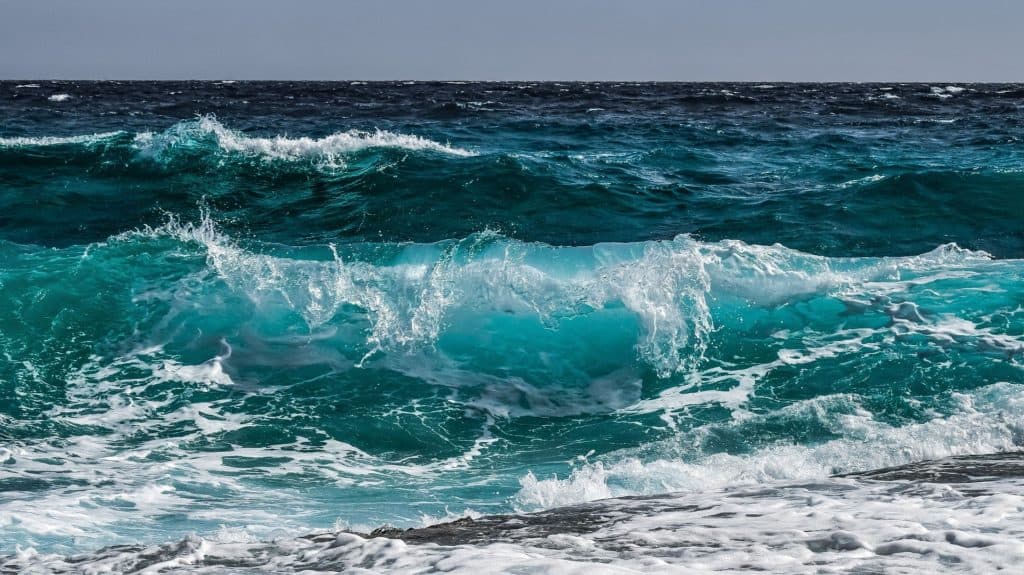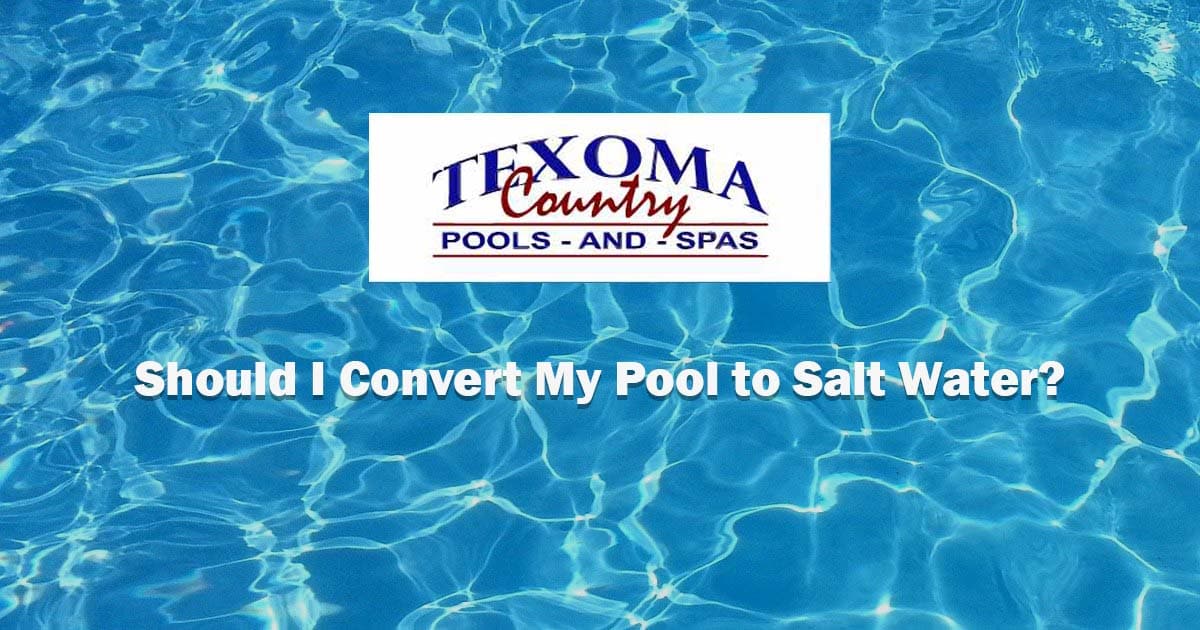Saltwater pools have drawn a lot of attention in the last 10 years. All of the buzz may have you wondering, “should I convert my pool to salt water?” Or, “should I build a saltwater pool?”
Whether you are upgrading an existing pool or building from scratch, your pool’s sanitation system is an important component of your swimming pool. It’s important to weigh the pros and cons of your investment.
Let’s explore how saltwater systems work and if they are right for your pool.
How Does a Saltwater Pool Work?
When people hear about a saltwater pool, they often assume that salt water is used in place of chlorinated water. Chlorine kills bacteria, algae, viruses and other microorganisms so it is safe to swim. However, both traditional pools and saltwater pools use chlorine to keep germs at bay.
Read More: Can Swimming Pools Transmit COVID-19
With a traditional pool, you’ll need to add chlorine via chlorine tablets, chlorine granules or shock solution.
A saltwater pool makes its own chlorine. Saltwater pools have what is called a salt generator or salt cell. The salt generator uses electrolysis to convert table salt (sodium chloride) into chlorine.
Pool water flows through the plumbing and filtration system to the cell. Inside, metallic grids use a low-voltage current to create a reaction that converts the salt into pure chlorine. The chlorine then reacts with the water to form hypochlorous acid – chlorinated water. The freshly chlorinated water is dispersed evenly throughout the pool through the return jets.
How Salty is a Saltwater Pool?
A salt chlorinator generally keeps your pool at 3,000 – 4,000 ppm. To put that into context, the salt water in your pool is about 1/10 of the salinity of the ocean. In fact, it’s similar to the salinity found in your contact lens solution.

Is Salt water Right for My Pool?
Salt water can be a good option for some pools, but it does have some limitations. Salt water is corrosive. If you choose to install a saltwater system you’ll need to ensure that your specific pool components are compatible.
Saltwater Pools Need Special Components
Salt water can corrode anything in or around your pool that contains metal. If you have any existing pool with lights, handrails, ladders or diving board components made from galvanized steel, you’ll need to replace these components with ones that are rated for use in saltwater pools. This is especially true if you have a pool with an automatic cover. You’ll need to make sure the parts on your pool’s cover will not corrode with salt water.
Salt water & Gunite Pools
Salt water is also abrasive on the interior surface of concrete/ gunite pools. Gunite pools are popular freeform pools because they are highly customizable and durable against wind, rain, and other elements. If you choose to use a saltwater system, you will need to plan and budget to resurface your pool more frequently than if you had a traditional chlorine pool. Resurfacing your pool can be fairly expensive, so it’s important to keep that in mind.
Are Saltwater Pools Less Maintenance?
Many people are interested in saltwater pools because they seem like less maintenance. While it’s true you won’t need to add chlorine to your pool, saltwater pools still require some maintenance.
You’ll need to add salt to your pool when you open your pool at the beginning of the season and possibly once or twice throughout the summer.
Both types of pools require that you test the water regularly to regulate the pH and chlorine levels. It’s especially important to keep your water chemistry right. Too much chlorine or off-balance pH is hard on your pool’s components and surface. Too little chlorine and your pool water is not properly disinfected.
You’ll need to inspect your pool’s salt generator monthly. It’s also a good idea to rinse your deck, patio furniture and pool components with fresh water weekly.
How Much Salt Does My Pool Need?
Most manufacturers recommend that you keep the salt level between 3,000 – 4,000 ppm. For a new pool, you’ll need to add 40–50 lb. of salt for every 2,000 gallons of water. For example, a large 36,000 gallon pool will need around 500 pounds of salt initially and then another 40 pounds later in the summer.
Saltwater Pool Costs
With a saltwater pool you don’t have the expense of chlorine. Most pool owners spend somewhere around $300 in chemicals to keep their chlorine pool open for the summer.
However, saltwater pools do cost more initially. Most salt chlorine generators cost upward of $2,000 to install. You also need to buy salt – about $50 – $100 per year.
Plan to replace the cell unit in your salt chlorine generator every 3-7 years, depending on your manufacturer’s recommendation. You can expect to spend anywhere from $500-1,000.
All pools need to be resurfaced periodically. However, saltwater pools will need to be resurfaced more frequently than traditional chlorine pools. Resurfacing costs can vary greatly depending on the type of surface you choose.
Taking all of the expenses into account, a salt chlorine generator may cost the same or even more than a traditional chlorine generator.

Is a Saltwater Pool Right for Me?
There are benefits to a saltwater pool:
- Clear, Silky Water
- Lower Annual Costs
- No Chlorine Smell
- No Need to Handle Hazardous Chemicals
- Gentle on Skin, Hair & Eyes
But ultimately, it comes down to your specific preferences, budget and pool. The experts at Texoma Country Pools and Spas can help you weigh your options as you design your dream pool.
Check out our pool gallery for ideas and inspiration.
Ready to jump in? Request a quote to get started today!

















